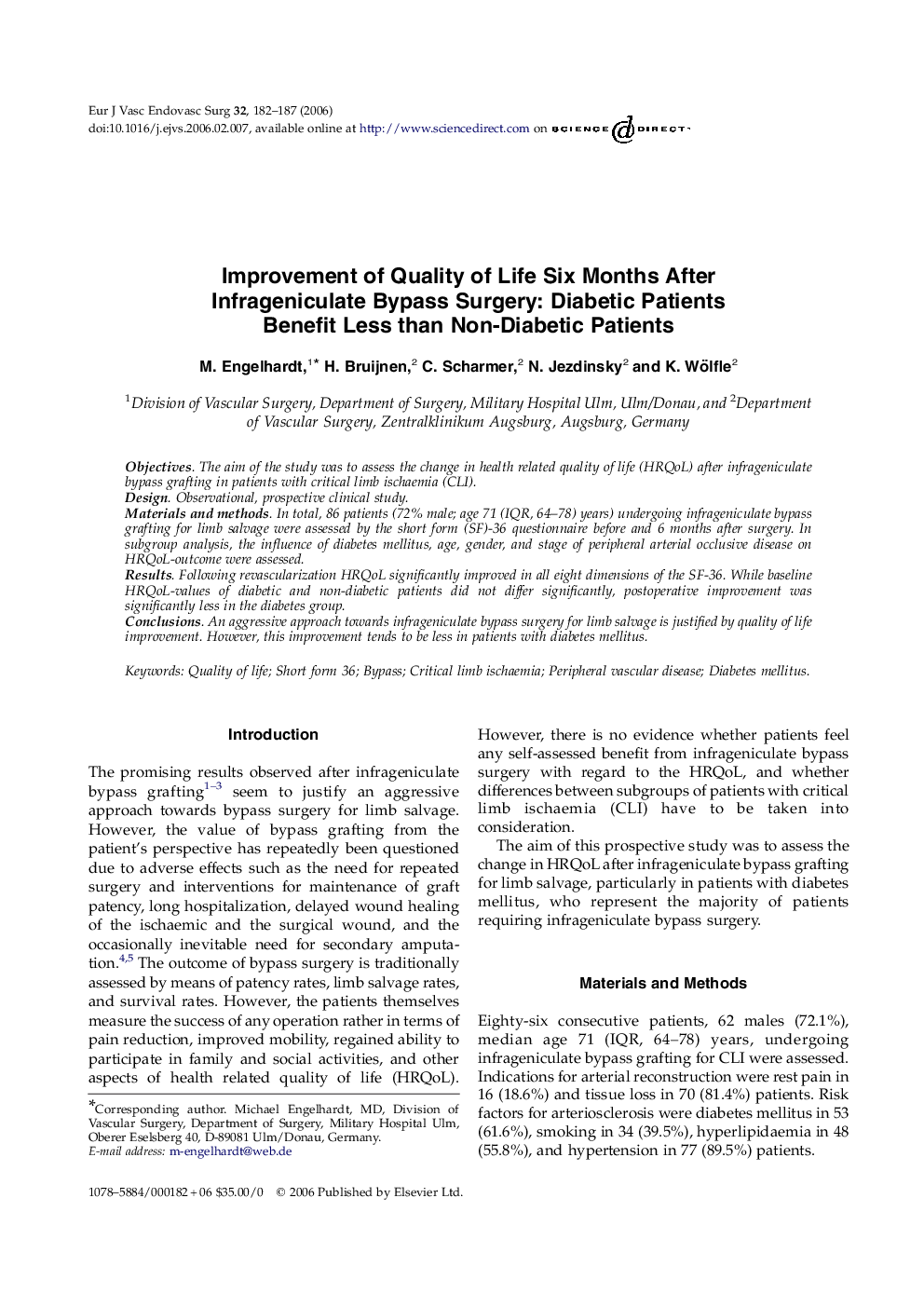| Article ID | Journal | Published Year | Pages | File Type |
|---|---|---|---|---|
| 2915034 | European Journal of Vascular and Endovascular Surgery | 2006 | 6 Pages |
ObjectivesThe aim of the study was to assess the change in health related quality of life (HRQoL) after infrageniculate bypass grafting in patients with critical limb ischaemia (CLI).DesignObservational, prospective clinical study.Materials and methodsIn total, 86 patients (72% male; age 71 (IQR, 64–78) years) undergoing infrageniculate bypass grafting for limb salvage were assessed by the short form (SF)-36 questionnaire before and 6 months after surgery. In subgroup analysis, the influence of diabetes mellitus, age, gender, and stage of peripheral arterial occlusive disease on HRQoL-outcome were assessed.ResultsFollowing revascularization HRQoL significantly improved in all eight dimensions of the SF-36. While baseline HRQoL-values of diabetic and non-diabetic patients did not differ significantly, postoperative improvement was significantly less in the diabetes group.ConclusionsAn aggressive approach towards infrageniculate bypass surgery for limb salvage is justified by quality of life improvement. However, this improvement tends to be less in patients with diabetes mellitus.
